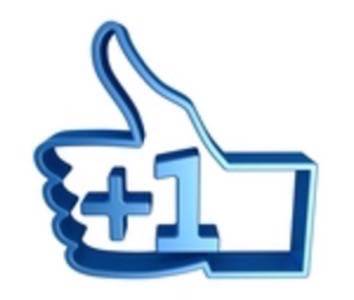On the eve of Facebook’s initial public offering, and two weeks after writing a five-part series that tried to answer the question of whether we’re in a social media bubble, the most striking thing to me is how divided people are on whether these astronomical values and this unlikely craze can be sustained.

Hundreds of tweets, comments, emails and more than the occasional accusations of being both a “Facebook naysayer” and “Facebook apologist” all at once leave me no closer to answering that question. But they do leave me with one important conclusion, no matter where you stand on the notion that we may or may not be in a social media bubble: We need Facebook’s IPO to work. We need what may be one of the biggest companies and biggest phenomena of our lifetimes to really be everything that those who don’t believe in the social media bubble say it is.
As someone who remembers the dot-com bubble (I was writing for Dow Jones at the time and got a front-row seat to the “irrational exuberance” Alan Greenspan warned us about) and believes we are overvaluing companies like Facebook, that’s hard for me to admit. But getting my pride dinged up would be worth not living through the catastrophe of what happens if Facebook’s IPO doesn’t live up to expectations.
Money Drives Dreams, Dreams Drive Innovation
This is what I wrote on the day Facebook filed its IPO, and this is what I still believe:
“Last year was marked by a string of disappointing IPOs in the social media sector – disappointments, in large part because those interests didn’t align as well as company executives had hoped… A successful Facebook IPO means some restored faith in the social media space. That means more capital and more incentive for the next Zuckerberg to come along and create something earthshaking instead of finishing a degree at Harvard.”
If Facebook raises $16 billion, as it hopes to tomorrow, it doesn’t just unleash a new string of Mark Zuckerbergs; it also unleashes a new string of Kevin Systroms who have great ideas, but no clear-cut way to monetize them. Zuckerberg may have been motivated by fear when he paid $1 billion for Instagram, but he bought it. And $16 billion can buy an awful lot of good ideas and fuel even more dreams.

But if it fails, naysayers like me get to say “We told you so,” and not much else. A chilling effect on the IPO market means less money flows from Wall Street to Silicon Valley. Fool us once, shame on the dot-commers who duped us more than a decade ago. Fool us twice, shame on everyone.
This Is a Story About Users
I’m going to leave predictions about where Facebook’s stock price will close on Friday to the sites that cater to investors. ReadWriteWeb is a site for people who use tech, and if we get too caught up in revenue projections, P/E ratios and and consensus analyst estimates, we miss what is important.
What is important is that if Zuckerberg remains true to his promise to not be driven by quarterly reports and share price, this ends up being a good thing for users. Yes, we will continue to complain about Facebook’s all-invasive service terms, and we will continue to hate on the world’s biggest social network. But most of us will continue to use it, if only because the people we need to keep in touch with need to use it.
By its sheer size, Facebook can generate enough revenue to keep moving forward as it has for the past eight years. As one analyst told me yesterday, if each of Facebook’s 500 million daily active users saw just one ad in their news feed each day, and Facebook collected two cents for that ad, the company would generate $3.5 billion in annual revenues.
Facebook can certainly do a lot more, and it hasn’t even tapped mobile revenue streams yet. Its growth may not live up to the pace that Wall Street investors want, but Zuckerberg has insisted he’s not going to be a slave to showing revenue growth each quarter. If he keeps that promise (and if the corporate structure he has selected gives him the power to keep it), users will, at the very least, not have to worry about shareholders or a board of directors messing up Facebook.
We may very well continue to bristle with every tweak and change Facebook makes to its design, and we may grow angry about privacy policy changes that serve to further erode privacy.
But at least we’ll know who to blame.
















